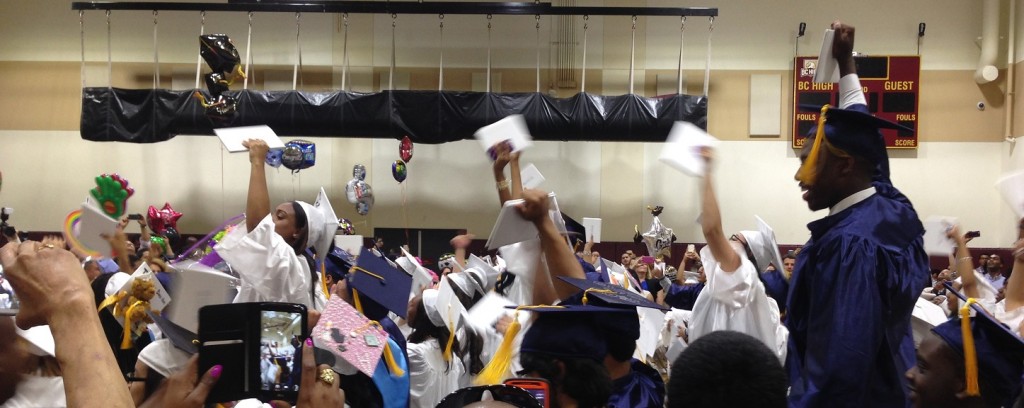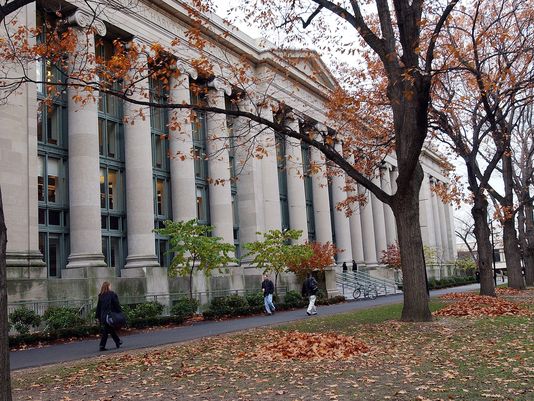Although it’s been a long time, I vividly recall my reaction when I learned that I had been admitted to Amherst College: The admissions office must have made a terrible mistake.
I had graduated from a Long Island high school where most students didn’t go to college, so I was convinced that at Amherst I would be overmatched by my better-educated, more sophisticated classmates and sliced to ribbons by my brilliant professors. To my surprise, I fared well academically, but I never entirely got over the feeling of being an impostor. Only decades later, at a class reunion, did I discover that many of my peers had felt exactly the same way.
Regardless of their credentials, many freshmen doubt that they have the necessary brainpower or social adeptness to succeed in college. This fear of failing hits poor, minority and first-generation college students especially hard. If they flunk an exam, or a professor doesn’t call on them, their fears about whether they belong may well be confirmed. The cycle of doubt becomes self-reinforcing, and students are more likely to drop out.
The good news is that this dismal script can be rewritten. Several recent research projects show that, with the right nudge, students can acquire ways of thinking that helps them thrive.
In a large-scale experiment at an unnamed school I’ll call Flagship State, incoming freshmen read upperclassmen’s accounts of how they navigated the shoals of university life. The accounts explained that, while the upperclassmen initially felt snubbed by their classmates and intimidated by their professors, their lives started turning around when they reached out to their instructors and began to make friends.
“Part of me thought I had been accepted due to a stroke of luck, and that I would not measure up to the other students,” wrote one upperclassman. “Early on, I bombed a test. It was the worst grade I’d ever received, and I felt terrible and isolated. But then I found out that no one did well on that test. The professor was trying to set a high standard.”
Other freshmen were introduced to research online showing that intelligence isn’t a static trait or the luck of the genetic draw, but can grow through hard work. They were exposed to what the Stanford psychologist Carol Dweck describes as a growth, rather than a fixed, mind-set. This shift can be transformative; as Dr. Dweck explained, “the view of intelligence that you adopt for yourself shapes your educational experience.”
The findings of the research project, published in June, show that both of these 40-minute online exercises had a profound effect on students from disadvantaged backgrounds. The previous year, only 69 percent of them completed a full freshman year course load, a strong predictor of graduation, compared with 79 percent for their better-off peers. The one-time interventions nearly halved this gap.
A related experiment by the same researchers enlisted high school seniors, mainly poor and minority, who attended top-rated urban charters. Out of 584 students, 41 percent who went through the exercise remained in college full time during their first year, compared with just 32 percent of the students who didn’t take it.
All students had “an initial doubt about whether they would fit in,” the researchers point out. What changed in the experiment was that, as freshmen, the participants were more likely to be drawn into campus life, seek out academic help and live on campus.
“When you’re starting college, you’re asking yourself whether you belong here. You’re ready to hear from someone like you, someone who has made it,” Claude Steele, a social psychologist at Berkeley and an iconic figure in the field, told me. “That’s especially important for a negatively stereotyped kid who feels he doesn’t fit in.”
A decade ago, two of the co-authors of the Flagship State study, Gregory M. Walton and Geoffrey L. Cohen, social psychologists at Stanford, began tracking the progress of black students at an elite private university. As freshmen, they had participated in a similar exercise. By the time they graduated, their grades were a third of a grade-point average point higher than their peers in the control group (the difference between B+ and A-), and they had halved the black-white achievement gap. They also reported being healthier and happier.
What’s more, the impact of this brief intervention may be lifelong. A follow-up investigation, still in the works, finds that in the initial stage of their careers these students are faring better professionally and personally.
The field of education is littered with fine ideas that never go beyond the hothouse of the lab. But this simple strategy has been shown to work wholesale. What’s more, it’s cheap. The experience takes place online, and so it costs next to nothing to have students go through it.
“The potential to make a scalable impact on education equity, getting this out responsibly to an unlimited number of students, is tremendous,” said Dave Paunesku, a co-founder of the Project for Education Research That Scales, a Stanford research center. He’s currently working with colleges, learning what help they need to make wide-scale implementation a reality.
Let’s be clear — although the psychological intervention is an exciting development, it doesn’t let universities off the hook.
“It’s the engine oil, not the engine,” Dr. Walton told me. Every university needs to do its homework, identifying and eliminating the major roadblocks to graduation, including everything from droning-lecture remedial math classes to short-term financial woes. And when students reach out for help or mentoring, it must be readily available.
But the evidence is incontrovertible. Undergraduates will be more engaged and fewer will drop out if universities adopt this two-pronged approach, giving students essential psychological tools and making their success an institutional priority. With a scandalously low 59 percent of undergraduates earning bachelor’s degrees in six years, the rest departing with no degree, sizable debt and weak job prospects, taking such action isn’t simply a smart strategy. It’s a moral imperative.
David L. Kirp is a professor at the graduate school at the University of California, Berkeley, a senior fellow at the Learning Policy Institute and a contributing opinion writer.
This article originally appeared in The New York Times on August 20, 2016


